


MGMU Leonardo da Vinci Textile Design program offers a comprehensive and hands-on learning experience, empowering students to become skilled and creative Textile Designers.
Missing Details
Year wise Program Structure of Undergraduate Program
|
Year 1 |
Professional Core(PC) |
Skill Enhancement Course (SEC) |
Indian knowledge System (IKS) |
Ability Enhancement Course (AEC) |
|||
|
Year 2 |
Professional Core (PC) |
Skill Enhancement Course (SEC) |
Indian Knowledge System (IKS) |
Value Education Course (VEC) |
OpenElective (OE) |
||
|
Year 3 |
Professional Core (PC) |
Skill Enhancement Course (SEC) |
Ability Enhancement Course (AEC) |
||||
|
Year 4 |
Professional Core (PC) |
Professional Elective (PE) |
Graduation Project (GP) Design / Art Collection |
FieldProject (FP) |
Industry Internship (OJT) |
||
| SR.NO | NAME | Organization |
|---|---|---|
| 1 | Dr. Monika Aggarwal | Chairperson,Dean Faculty of Design, MGM University, Chhatrapati Sambhaji Nagar, Email id: [email protected]. |
| 2 | Dr. Vijaya Deshmukh | Professor, Dean, Faculty of Management |
| 3 | Ms. Anjali Khot | Associate Professor, Institute of fashion Design |
| 4 | Ms Kavita Rajput | Assistant Professor, Institute of Fashion Design MGM University |
| 5 | Mr. Ambrish Gaur | Expert in Industry, Assistant professor: School of Design (Dept. of Fashion Design) MIT-World Peace University, paud Road' Pune Maharashtra. |
| 6 | Mr.Suresh Karale | Expert in Academics, Head of Department Design PG Programme School of Fashion Technology, Pune. |
| 7 | Ms. Anjali Karolia | Professer, Deparment of Clothing and Textiles Faculty of family and community science The Maharaja Sayajirao University of Baoroda Vadodara-390002 |
Textile Designer: Textile designers create patterns, prints, and textures for fabrics. They often work with fashion designers, interior designers, and manufacturers to develop unique textiles for various applications.
Fashion Designer: A background in textile design can be valuable for a fashion designer. Your expertise in fabric selection and manipulation can set you apart in the fashion industry.
Surface Pattern Designer: Surface pattern designers create repeat patterns for various surfaces, including fabrics, wallpaper, and home decor. They work with companies in the textile, home furnishings, and interior design sectors.
Textile Technologist: Textile technologists work on the technical aspects of textile production, such as quality control, production optimization, and ensuring compliance with industry standards.
Textile Researcher: Textile researchers explore innovative materials and technologies for textiles. They often work in academia or research institutions, focusing on sustainability, performance, and advanced materials.
Color Consultant: Color consultants work with textile and fashion companies to develop color palettes for collections. They also help with color trend forecasting.
Production Manager: Production managers oversee the manufacturing process of textiles. They ensure that production runs smoothly, meets quality standards, and stays within budget.
Textile Buyer: Textile buyers source and purchase textiles for retail companies, fashion brands, and interior designers. They work closely with suppliers to select fabrics that align with their clients' needs.
Textile Merchandiser: Textile merchandisers combine their knowledge of textiles with marketing and sales skills. They help promote and sell textile products to retailers and consumers.
Textile Conservationist: If you have a passion for preserving historic textiles and artifacts, you can work as a textile conservator in museums or cultural institutions.
Textile Sales Representative: Sales representatives in the textile industry sell fabrics and textiles to retailers, designers, and manufacturers. They often require strong communication and negotiation skills.
Textile and Apparel Product Developer: Product developers work on creating and improving textile-based products, ensuring they meet performance and quality standards. They collaborate with designers and manufacturers.
Textile Entrepreneur: If you have an innovative idea or design, you can start your own textile-related business, such as a textile design studio, a sustainable textile brand, or an online fabric store.
Textile Educator: With further education and experience, you can become a teacher or instructor in a textile design or related program at a college or design school.
Textile Consultant: Textile consultants offer expertise to clients in various areas, including product development, sustainability, sourcing, and market trends.
Networking, internships, and staying updated with industry trends and technologies will be important for building a successful career in textile design. Developing a strong portfolio showcasing your work can also help you stand out in this competitive field.
Missing Details
Missing Details
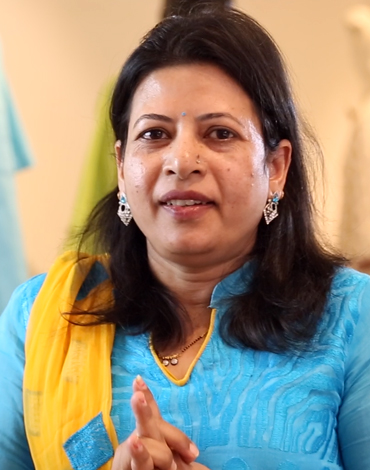
Ms. Anjali Khot
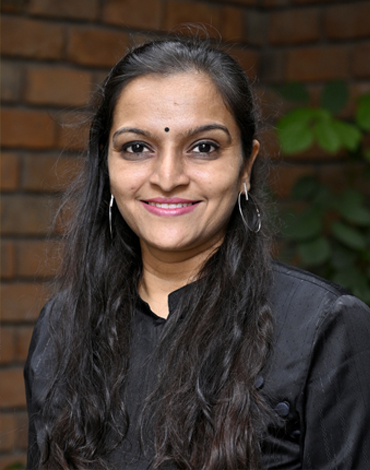
Ms. Kavita Rajput
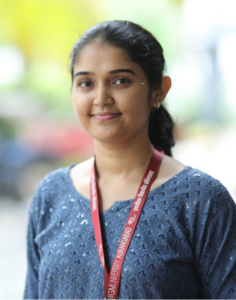
Ms. Shivani Khedkar

Dr. Adya Tiwari
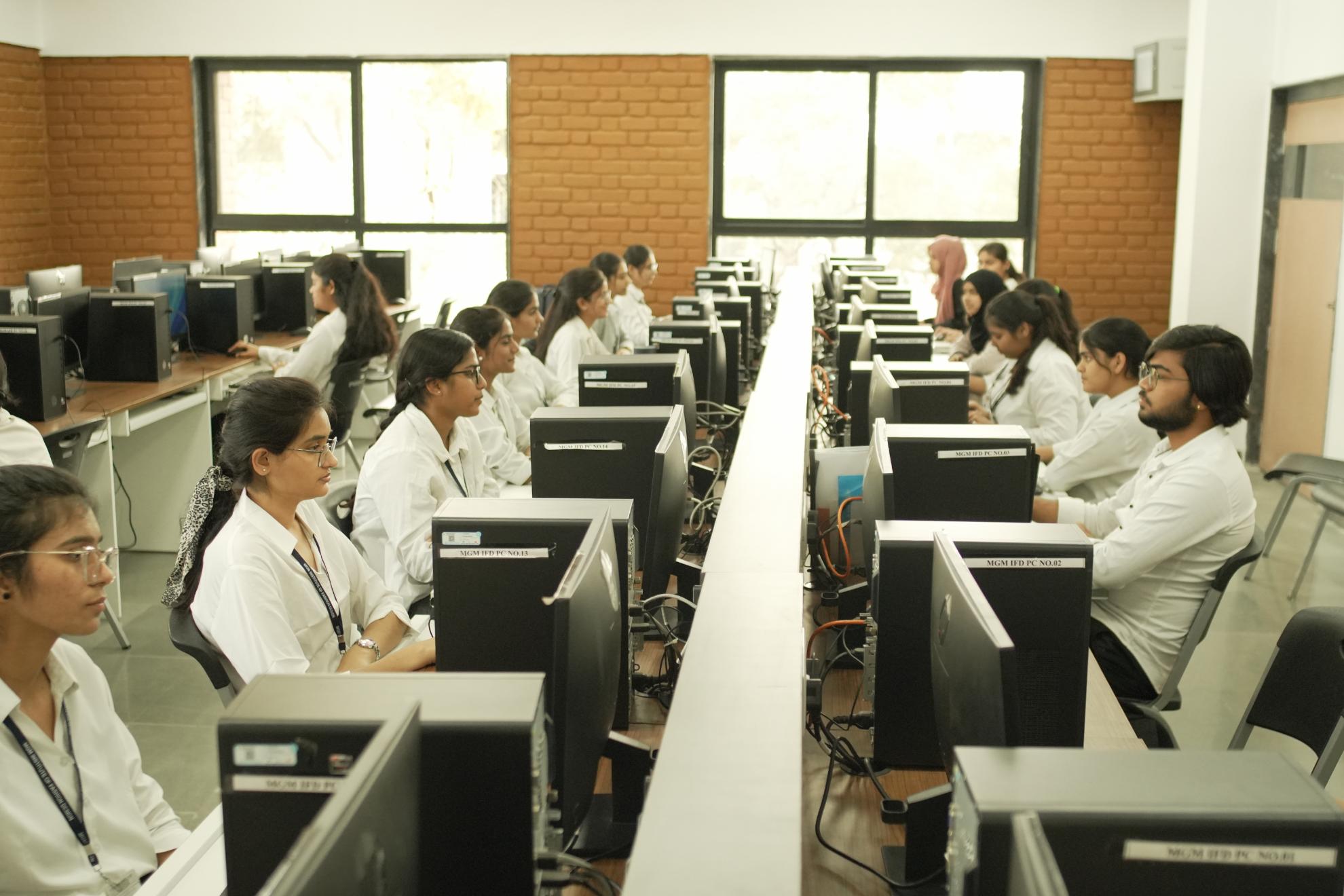
The Computer lab caters the class of 40 students. List of Design Software accessible to the students:-
Adobe Illustrator, Photoshop, InDesign, CorelDRAW AutoCAD
(All the computers have 24X7 internet access.)

IFD Total books. 601 volume Total magazine 06 Volume 189
Total journal 03 Volume 30
COFA Total books volume 852 Total magazine 4
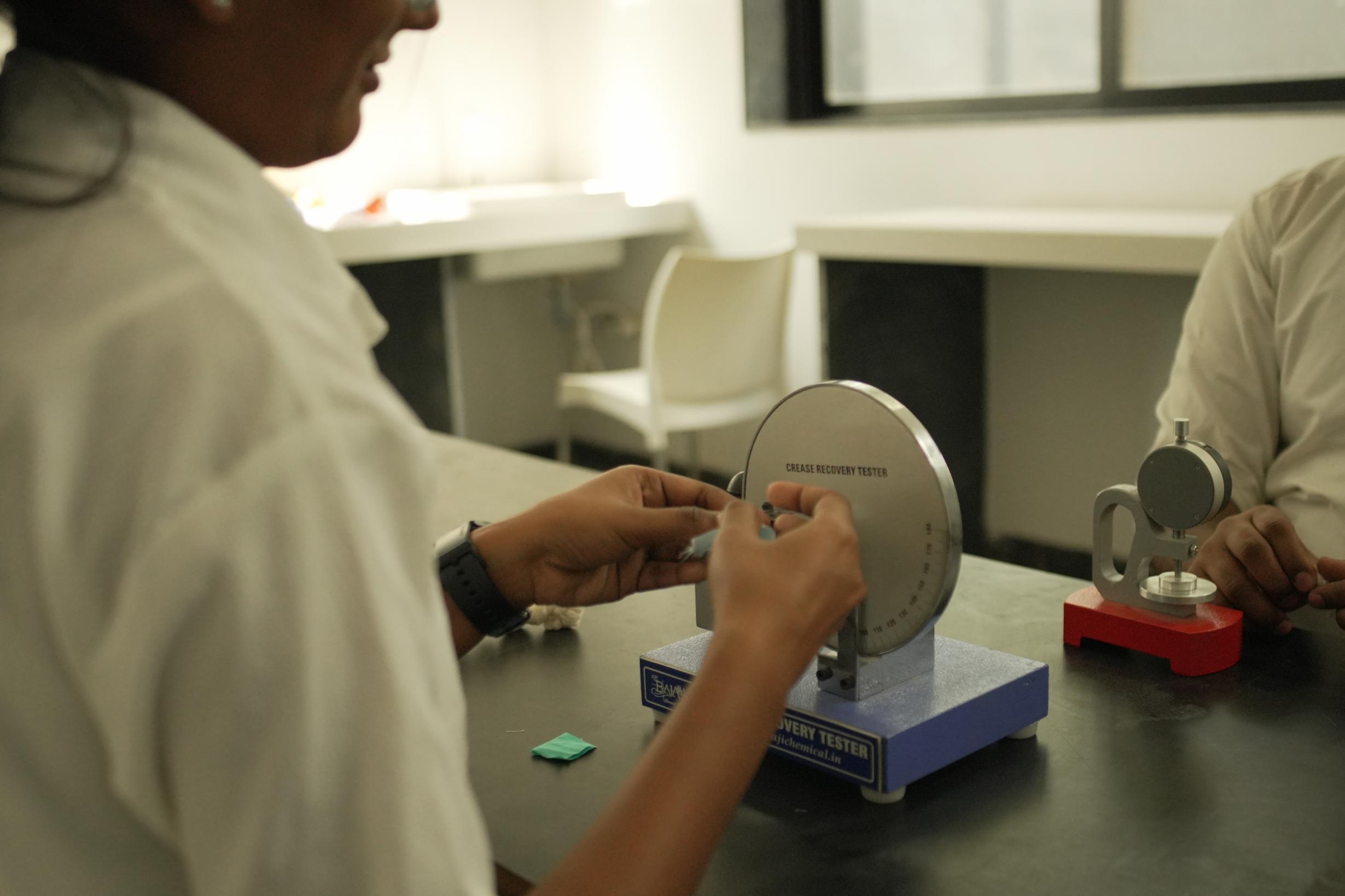
List of equipment’s accessible to the students: -Fibre testing equipment - Microscope
Yarn Testing Equipment - Beesly Balance Twist Tester Wrap Reel Motorized Crease Recovery tester GSM Round Cutter Fabric thickness tester Tearing strength tester
Washable platform for Chemical Testing with a sink at the corner For Mechanical Testing wooden platforms or tables with storage and a centre table for cutting of specimen and demonstration
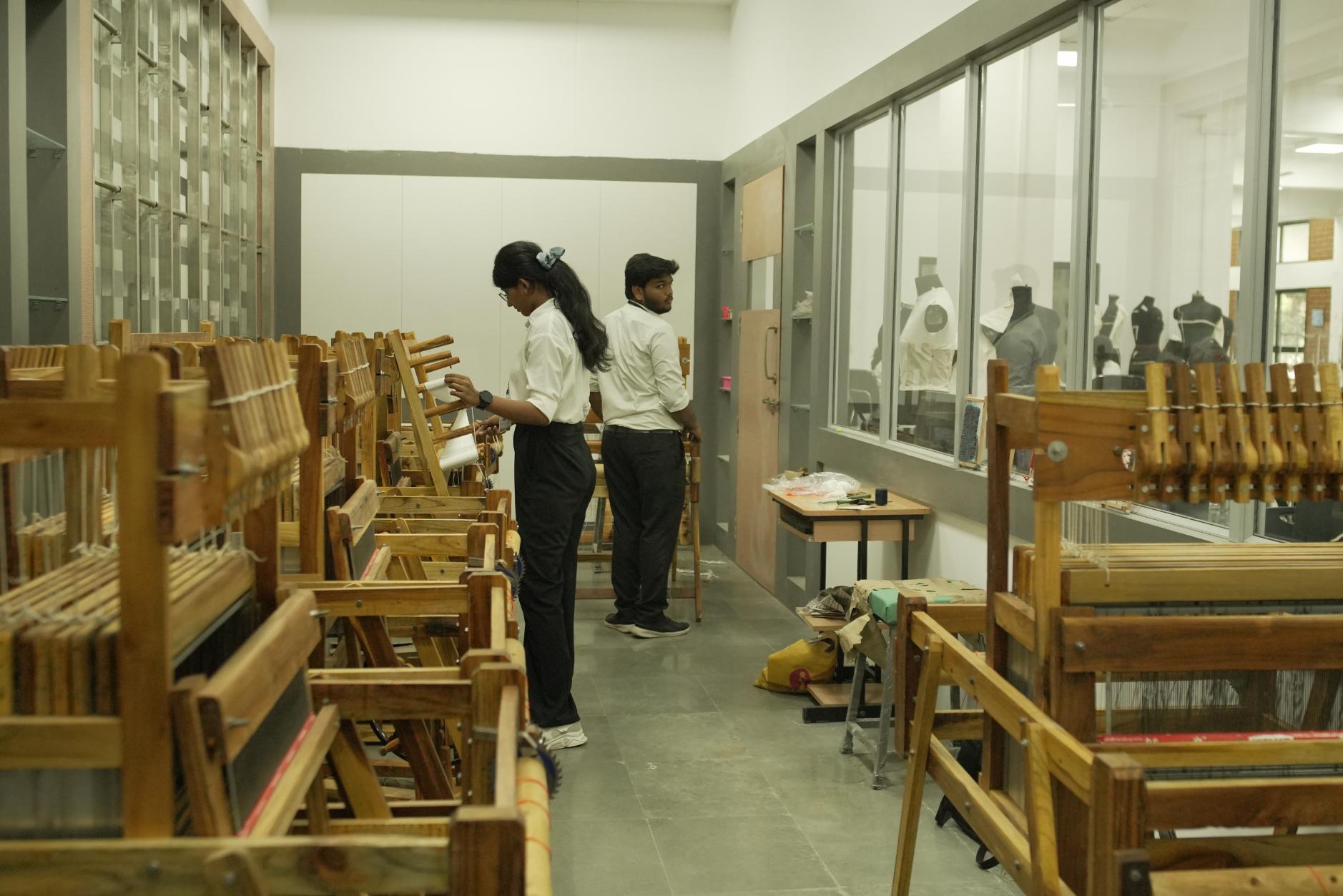
Equipped with table looms so that students can create weave patterns.
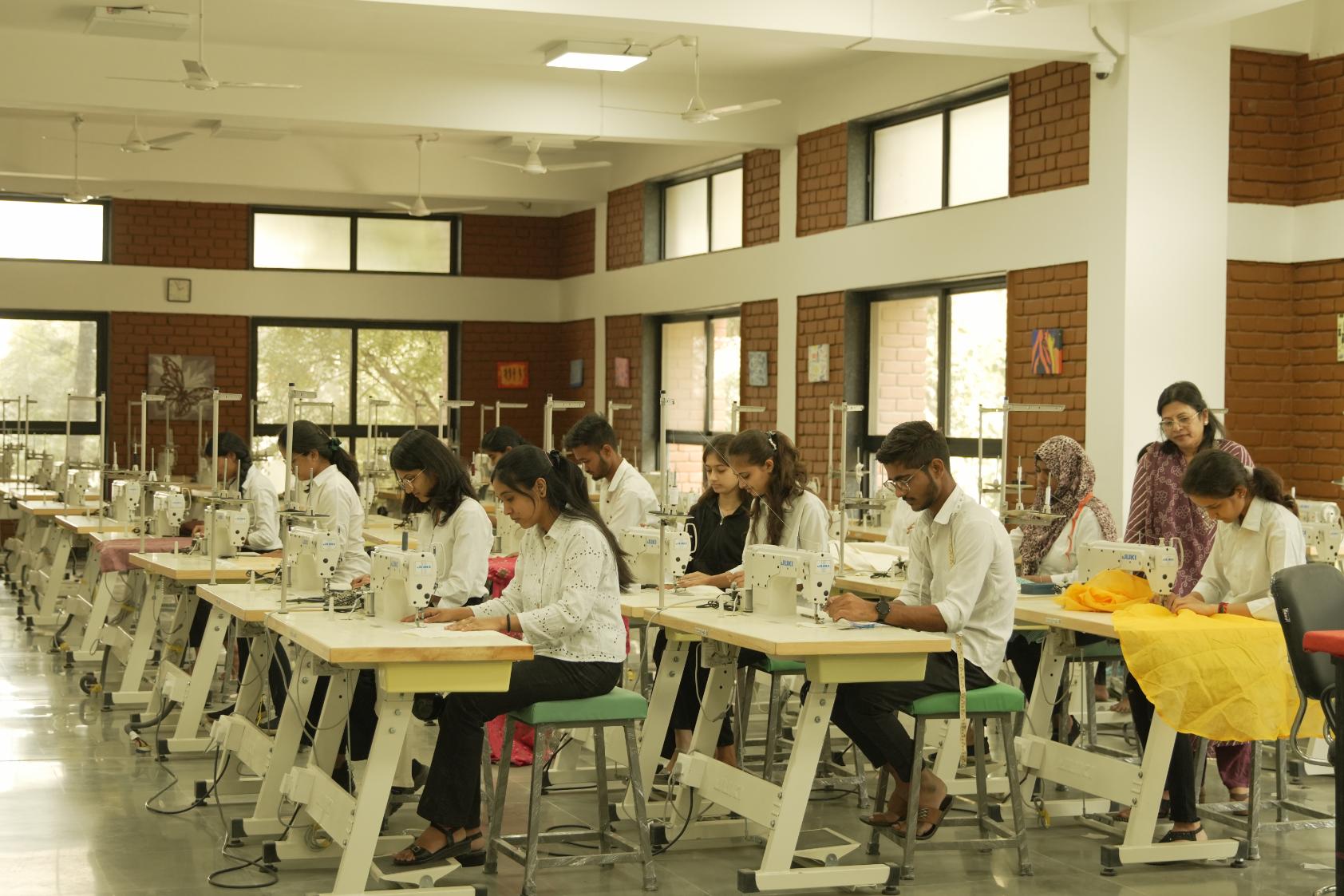
Garment Construction lab is equipped with commercial sewing machines (Juki), drafting tables and white boards
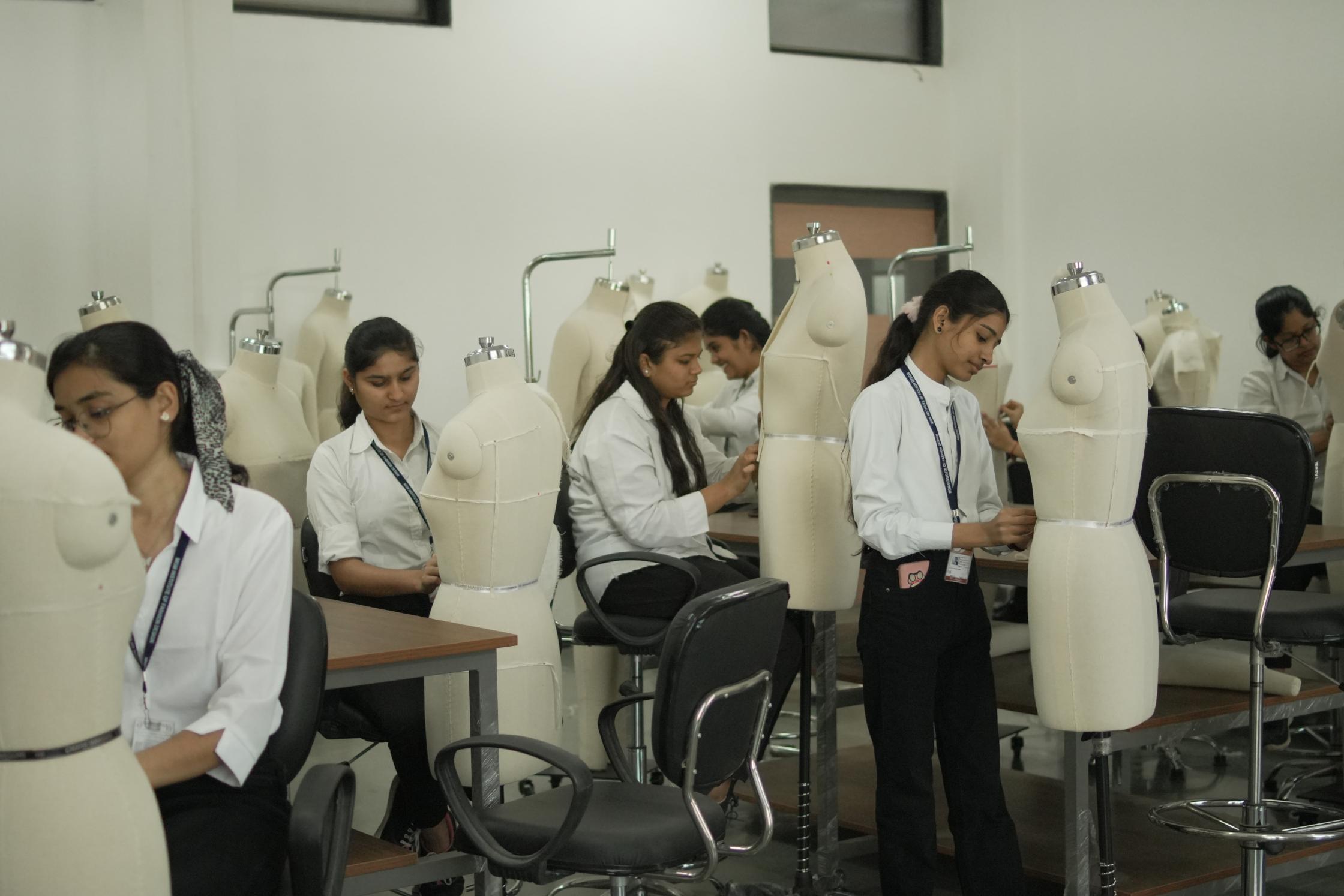
The Pattern making studio is equipped with drafting tables, dress forms and white boards.
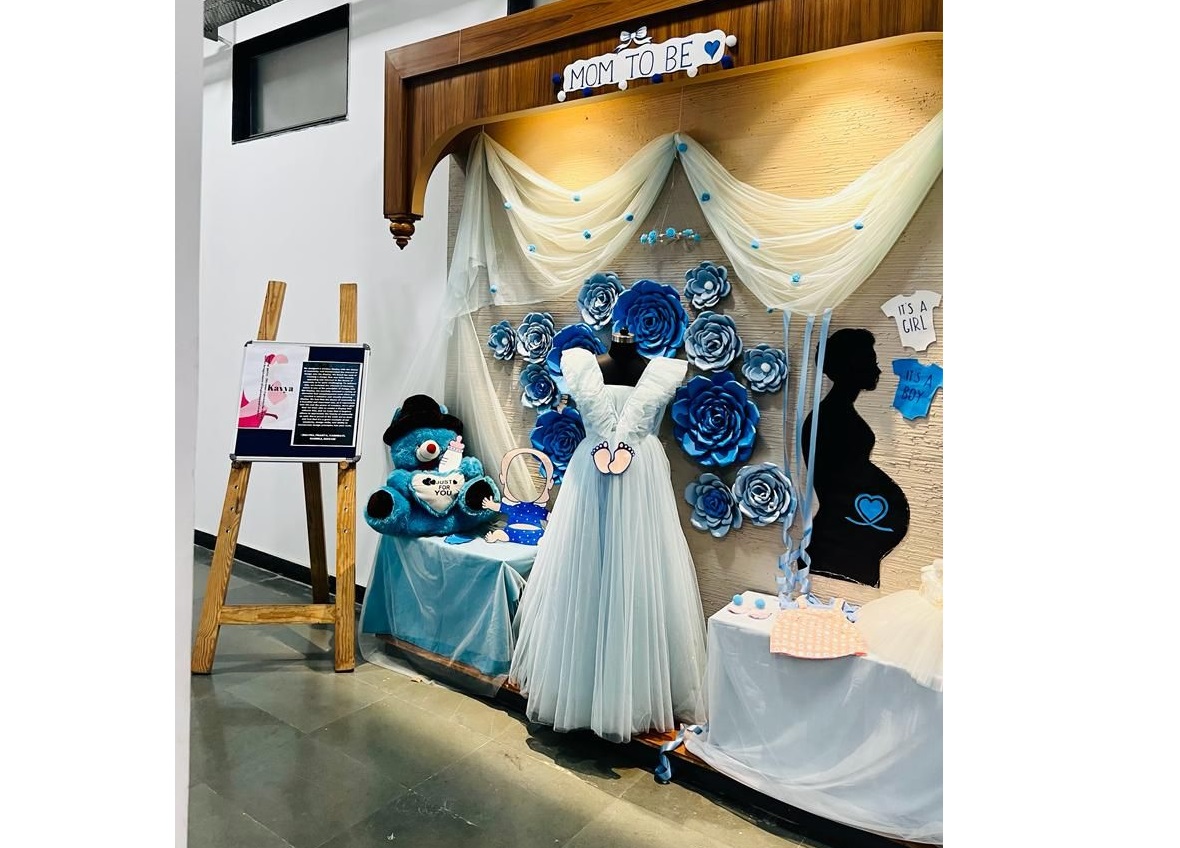
Exhibition Area to exhibit students, work.